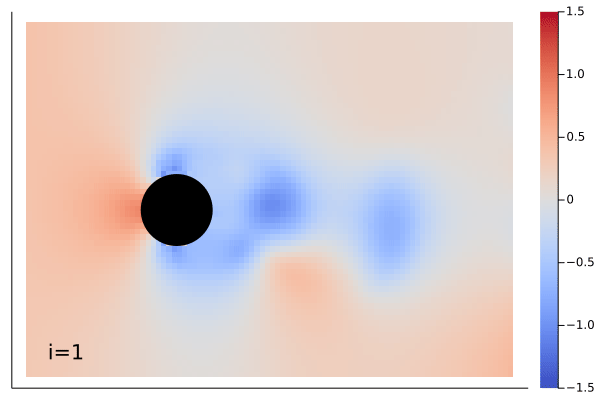Learning Dissipative Dynamics in Chaotic Systems
Chaotic systems are notoriously challenging to predict because of their sensitivity to perturbations and errors due to time stepping. Despite this unpredictable behavior, for many dissipative systems the statistics of the long term trajectories are governed by an invariant measure supported on a set, known as the global attractor; for many problems this set is finite dimensional, even if the state space is infinite dimensional. For Markovian systems, the statistical properties of long-term trajectories are uniquely determined by the solution operator that maps the evolution of the system over arbitrary positive time increments. In this work, we propose a machine learning framework to learn the underlying solution operator for dissipative chaotic systems, showing that the resulting learned operator accurately captures short-time trajectories and long-time statistical behavior. Using this framework, we are able to predict various statistics of the invariant measure for the turbulent Kolmogorov Flow dynamics with Reynolds numbers up to 5000.
PDF Abstract
